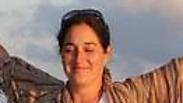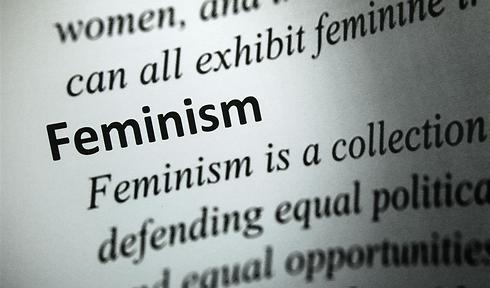
Are you a Jew or a feminist?
Four women, four questions and four ideas – Are we standing before a new generation that links Jewish values to feminist values, or are we still far from this bond? 'If we don't ask these questions and remain within gender boundaries, the Israeli Judaism will be harmed,' warns Devorah Evron.
The ideas of feminism and women's empowerment expand into public discourse, the statute book and yes, even into synagogues and Midrashim (houses of study). They too need to face the issues that arise within Judaism in Israel in recent years in regards to gender equality and its implications.
Before we begin talking about feminism from the Jewish perspective, we must first ask what feminism is and whether Judaism does indeed contradict with the concept. Author Judith Laslow wrote that if something is feminist it is not Jewish, and if something is Jewish then it is not feminist. Do we all agree with her? Absolutely not!
The question of feminism from the Jewish perspective is largely individual. Each of the interviewees sees things differently and in a different light, ranging from wanting to connect and defuse the tensions to contradictions and problems. "I see the debate on issues of feminism and Judaism as Tikkun Olam (repairing the world)," says Dr. Ruti Feuchtwanger, CEO of the "Kolech" (your voice) organization.
Feuchtwanger explains that the goal is to reduce the tensions between women and men who believe in the values of gender equality. "Judaism and religiousness are important to me, just like the values of feminism are central in my life. I believe that Judaism is 'Torat Chaim' (theory of life). In other words, it is inconceivable that something inside me needs to die and so we need to find a way in which all things settle," says Feuchtwanger.
Judaism does not contradict feminism
One woman who chooses to see the issue more clearly is Noya Sagiv, a doctoral student in the School of Education at Haifa University who focuses on the teachings of the Bible and is one of the founders of "Project 929 – Studying the Bible Together." According to her, while there is the Orthodox-Haredi Judaism that excludes women, there is also one that faces these issues head on.
"I know of a Judaism in which the first woman that was created in the Garden of Eden was equal to the man, a Judaism in which Sarah – the wife of Abraham – dealt with her own sterility. I know of a Judaism in which the biblical law takes an exceptional hard line against offenses such as rape and incest. A Judaism in which Rabbi Akiva declared that all of his teachings and winnings belong to his wife Rachel," says Sagiv, "And so in my opinion, Judaism cannot be generalized to determine that it contradicts feminism and gender equality."
According to her, Jewish feminism is seeing women as worthy of equal rights, abilities and interests, both at the level of learning contents and ideas related to the world of Jewish values and at the level of producing contents and taking part in rituals through understanding them and the idea behind them.
Tamar Applebaum, the rabbi of the ZION community – an Israeli Congregation in Jerusalem, explains that in her view, feminism is a means and not an end. "Of course I am a religious feminist, but that is not what defines me. In my opinion, feminism is a path that goes hand-in-hand with my religious consciousness and seeks to awaken people to the human experience, through which I discover the presence of God in every person in the world."
According to her, the goal is to make a person stand tall. "Many walk around despondent, feeling unequal and unworthy in a world where only one kind of person is given the freedom to stand tall. Both the person that was not given the duty and the right to be equal and the other side are ideologically hunched," Applebaum explains.
Women's exclusion an inseparable part of discourse
All of the women we spoke with note that, for the better, the issue of Jewish learning by women, especially through the view of feminism, has greatly escalated in recent years, to an unprecedented degree.
"I'm sure that in the past there were also women that did not like their role or place within Judaism," says Feuchtwanger. "I found an Italian female poet from the 19th century, and you could see from her poems that she was not satisfied with her role within Jewish life, but this discussion never existed – surely not at the level in which it is present today in the Israeli public debate." Feuchtwanger proudly says that concepts such as the exclusion of women and aginut (women who are refused divorce) did not exist up until a few years ago and today play an inseparable part of discourse about religion.
Noya Sagiv: "In the world I come from – the secular world – I invite all women to learn, to touch and to understand life rituals that we use in religion and in tradition. There is great importance in the ability to engage, to know and to take part in study groups and Midrashim that are thankfully all over the country and not only in Tel Aviv." According to Sagiv, one can also learn about the subject through other sources such as the internet, where women write and are an integral part of the project.
Devorah Evron of HaMidrasha at Oranim runs "Nigun Nashim" – a program for gender and Jewish revival. During a debate on the matter she points out that feminism was given forms of expression in Israeli Jewish practice. "There's a more active form a feminism that says that some Jewish practices should be altered, and some say that the tables should be entirely turned and gender differences need to be completely eliminated. Some say this should be done through Halacha, and some say that the Halacha does not concern them."
Evron explains that the importance of feminism is not only for religious rituals, but also for changes that people make in their families in regards to Judaism practiced in Israel. "We live in a traditional culture that distributes roles according to tradition and preserves them, and we don't challenge ourselves," says Evron. According to her, these questions need to be asked in order to allow a situation in which even a secular single mother could feel she could pass on the Jewish tradition in her home and, for example, perform the Kiddush on her own – something that is possible according to Halacha. "If we don't ask these questions and remain within this gender fixation, the revived Israeli Judaism would be harmed," she warns.
There is no more suitable ending to this discussion than presenting one of the most pleasant definitions of feminism in the Jewish Israeli arena, which was brought about by Rabbi Applebaum: "Feminism is a gift that is meant to discover more of the forces that are in the people on this earth, and to create more bonds between people in the world."
"Feminism in not a religion, but a very significant donation to the development of faith," says Applebaum. "In my internal terms, the essence that stands in the heart of feminism is the respect for man, freedom and responsibility that one has for others. Feminism gave us the opportunity to open the synagogues and the Midrashim. Feminism let us open the world of Jewish leadership to more voices that have never been heard."











